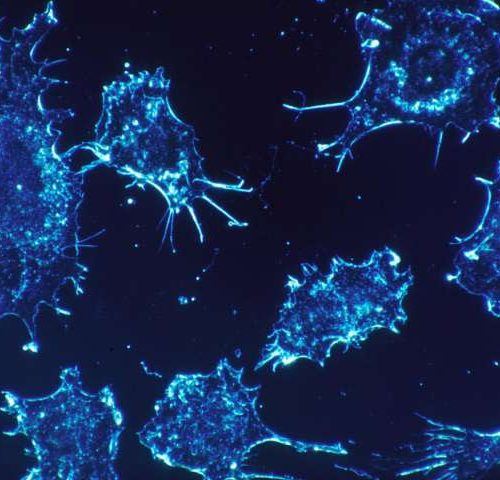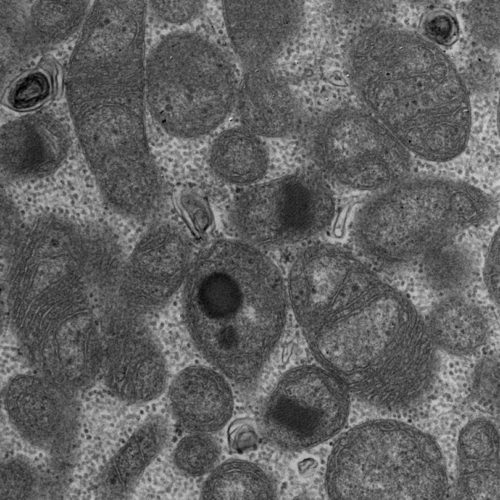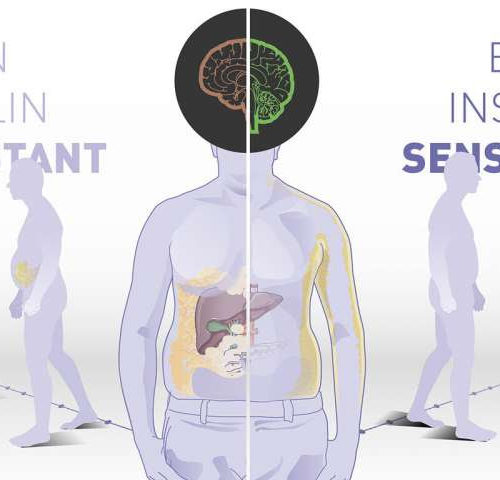by Yale University Our cells have several ways to repair DNA that breaks when the cells divide. However, genetic mutations can disable these DNA repair mechanisms, destabilize the cells, and trigger cancer. In a paper published today in the journal Nature, Yale Cancer Center (YCC) scientists have identified mutations in metabolite-producing genes as a disruption...
Category: <span>Metabolic</span>
Weight loss surgery may alter gene expression in fat tissue
Altered gene expression in fat tissue may help explain why individuals who have regained weight after weight loss surgery still experience benefits such as metabolic improvements and a reduced risk of type 2 diabetes. The findings come from a study published in the Journal of Internal Medicine. The study included women who underwent weight loss...
Vitamin B3 revitalizes energy metabolism in muscle disease
An international team of scientists, led by University of Helsinki reported that vitamin B3, niacin, has therapeutic effect in progressive muscle disease. Niacin delayed disease progression in patients with mitochondrial myopathy, a progressive disease with no previous curative treatments. Vitamin B3 forms have recently emerged as potent boosters of energy metabolism in rodents. These vitamins...
Repurposed drug helps obese mice lose weight, improve metabolic function
by NIH/National Institute on Aging An off-label experiment in mice using disulfiram, which has been used to treat alcohol use disorder for more than 50 years, consistently normalized body weight and reversed metabolic damage in obese middle-aged mice of both sexes. The international study was led by researchers at the National Institute on Aging (NIA),...
Scientists Found A Way to Disable a Gene Responsible For Obesity: Worry About Getting Too Fat No More?
Scientists were able to prevent obesity in mice by blocking macrohages, key inflammatory cells, within the body. Researchers from the Washington University School of Medicine in St. Louis have successfully disabled a gene in specific mouse cells, preventing mice from becoming obese even after being fed a high-fat diet. Macrophages, vital inflammatory cells which are...
New molecular auto-control system to avoid an excessive brown adipose tissue activity
Scientific team found a new metabolism regulation system for the brown adipose tissue using the kallikrein-kinin hormonal system, so far related to the physiology of the renal and cardiovascular system and inflammation and pain processes. This molecular auto-control system of lipidic metabolism, so far unknown, could help prevent the damaging effects derived from an excessive...
Study suggests nicotine exposure alone leads to pulmonary hypertension
by Louisiana State University A study conducted by a team of researchers at LSU Health New Orleans has shown for the first time that chronic exposure to inhaled nicotine alone increases blood pressure (hypertension), in both the body’s general circulation and in the lungs that can lead to pulmonary hypertension. The study also found that...
People with brown fat may burn 15% more calories
WASHINGTON–Short-term cold exposure may help people with brown fat burn 15 percent more calories than those without, according to a small study published in the Endocrine Society’s Journal of Clinical Endocrinology & Metabolism. Unlike white fat, brown fat burns calories through fatty acid oxidation and heat production and is considered a promising target in the...
Boosting levels of good fats with an experimental drug that acts on two newly characterized genes
LA JOLLA–(May 1, 2020) Salk and Scripps Research Institute scientists, along with collaborators at the pharmaceutical company Lundbeck, identified two genes that can regulate levels of healthy fats, called FAHFAs, in mice. The team found that the loss of the two genes led to higher-than-normal levels of the beneficial FAHFAs, while blocking the genes’ activity...
Brain insulin sensitivity determines body weight and fat distribution
by Deutsches Zentrum fuer Diabetesforschung DZD Just where fat is deposited in the body and to what degree a person may benefit from a lifestyle intervention depends, among other things, on how sensitive the brain is to insulin. If the person’s brain responds sensitively to the hormone, a significant amount of weight can be lost,...







